Last month, Clown Skateboards and AllcityX teamed up for a capsule collection based around the classic Brazilian film City of God. This was formulated with the aim of helping The CDD Skate Arte Project raise money for classes, cultural events, workshops and lectures. To coincide with the project we caught up with skateboarder and academic Damian Platt, who has spent many years working in and writing about the favelas, to gain a glimmer of insight into the situation there and an idea of what part skateboarding can play as a positive social force.
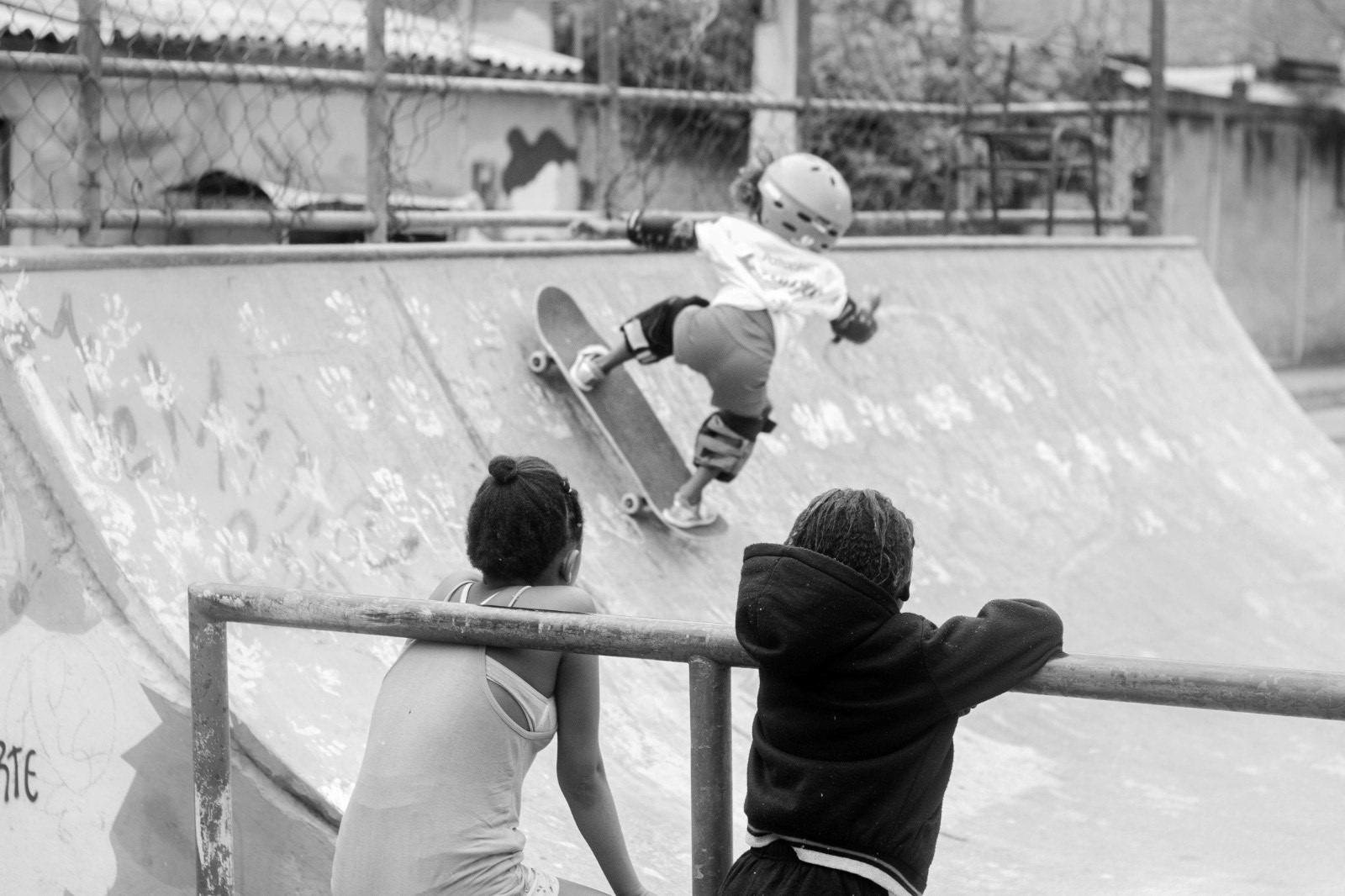
Photo: Thiago Almeida
Introduction & Interview by: Jono Coote
Photography by: Thiago Almeida
Upon its release in 2002, Fernando Mereilles’ City of God acted as a lightning rod drawing global attention to the favelas of Rio de Janeiro. The film’s editing style drew comparisons to Quentin Tarantino’s oeuvre, but in no film up to that point had Tarantino managed to balance adrenalin, joy and tragedy with such finesse. In this sense it is arguably still unrivalled and, in the 20 years since it hit the big screen, the film (based on Paulo Lins’ novel of the same name) has become a cultural touchstone when referencing life in the favelas.
With news reaching us of Clown in Action’s collaboration with Mereilles – a capsule collection using imagery from the film in order to raise funds for the CDD Skate Arte project to run classes, workshops and lectures in the favelas – we wanted to dig deeper. What place can skateboarding have in a world where, by all accounts, violence has intensified since the time period covered in City of God? Where the the state of warfare between the gangs and the police is a constant, and where brute force is oft used as a political tool?
Damian Platt is an academic specialising in the political and socio-economic situation in Brazil, author of multiple books on the subject and one of the driving forces behind the Maré Favela Skatepark built by Make Life Skate Life in 2019. Catching up with him over a coffee and a video call, we discussed the impact of skateboarding on Rio’s youth, how the film matches up to reality, the ever-changing political situation in the country and the dangers inherent in building a skatepark in a favela.
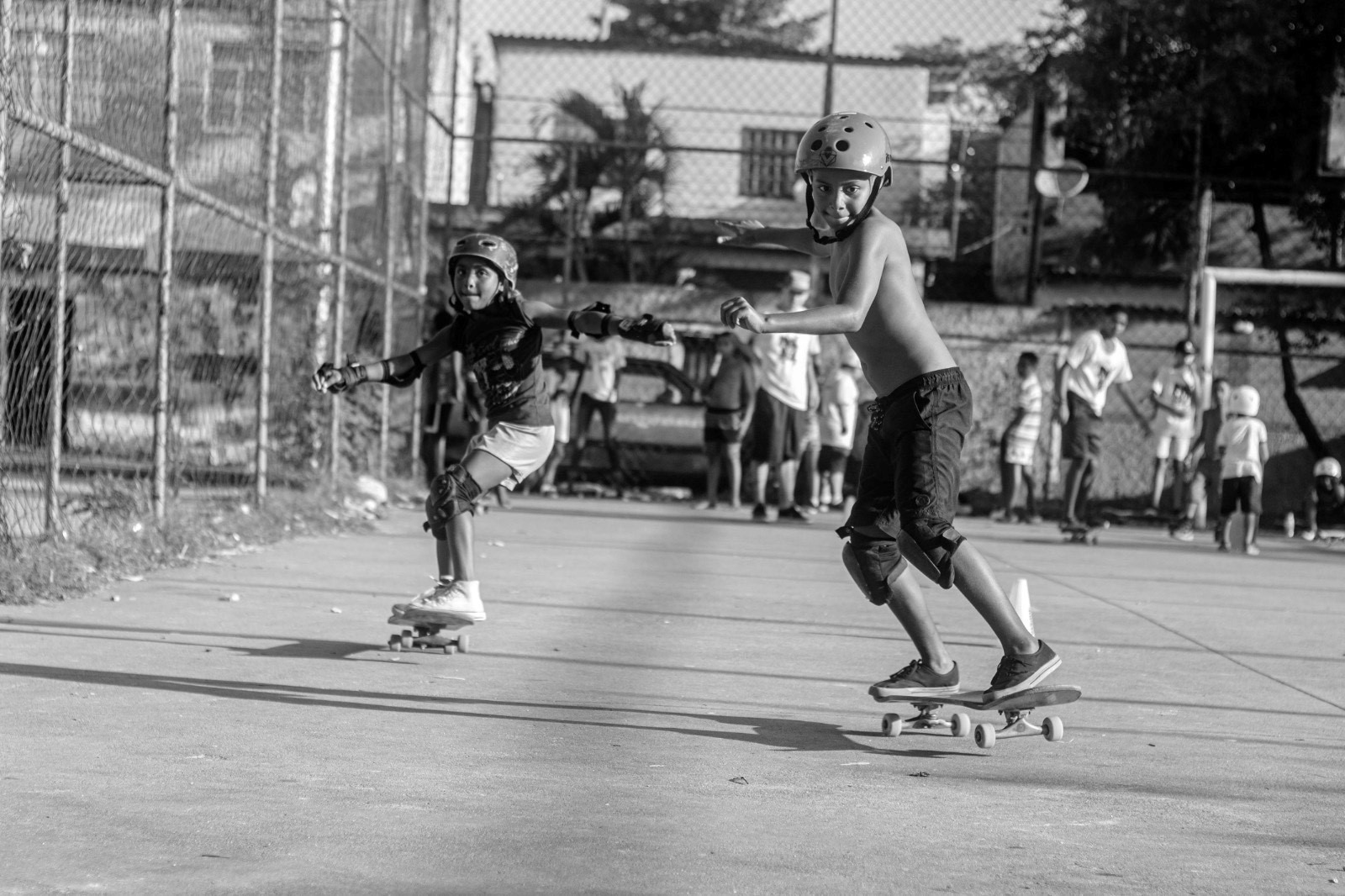
Photo: Thiago Almeida
How did this project with Clown In Action originally come about?
I was living in Brazil for a long time and I got involved in the skate scene in low income communities, the favelas, specifically one place where we ended up building a park. During that time I was taking over boards that I was getting from Slam City Skates. That started with me going in one day, there was a pile of decks laid there and I asked what they did with them and whether they’d be interested in donating some for me to take to Brazil. Every time I went to London I’d go to Slam and get maybe two boxes, they were very generous. That carried on when I went to Leeds with Welcome Skate Store. When Clown restarted I was living in Nairobi, I was there for a few years because my wife worked there and I was working with the skaters there, working out how to get them kit. In those countries it’s hard to get access to hardware unless you’re very rich. It’s a massive thing for skaters from low income backgrounds if you can get them a board, they’ll make it last for a year. Clown restarted, I heard about it and I wrote to them. They were super friendly, they gave me some boards straight away which I brought out to Kenya, then we got £500 from the Clown in Action fund. I took that budget, we built some DIY, some wooden ramps and things, and they were just very generous and uncomplicated about helping us.
I went back to Brazil in 2021, took a box of Clown boards then, and I went back last year to renew my visa and took another load of boards then. That’s really how I got to know them, and when Jeff told me about the City of God collab I said that, if he needed any help, he should let me know. City of God is a great film, one of the landmark Brazilian films. There is that negative aspect of one of the best Brazilian films being about guns and drugs, and I know a few Brazilians feel that way about it, but at the same time it paints a very true story of a part of Brazil. Residents in the City of God favela used to complain about the film, saying they’ve been stigmatised for it, but their complaint isn’t that well founded. It does tell the story of Rio and what happened in the 1970s and 80s. But the favelas are more than that as well.
Clown is releasing this capsule in order to raise funds for CDD Skate Arte, an organisation that uses skateboarding as a vehicle to share events, workshops and lectures with the youth of Cidade De Deus. You’ve talked about access to hardware being an issue in certain places, but how important do you see these kinds of initiatives as being to driving social change?
There’s always been skating in Brazil and it’s always been popular, but it was always a middle class activity for people with money. In the favelas, with rare exceptions, they just didn’t do it. About ten years ago people began getting wider access to skateboarding equipment, some people in favelas began to skate and it began to open up to them. In terms of kids in favelas having access to skateboarding, it’s more than a straightforward social project – “We are bringing this activity to you, to take your minds off things for a few hours.” As you know skateboarding can be something that changes your life, gives you friendship networks and takes you around.
Rio is very divided by gang warfare. When you see City of God, it’s like that but worse because it’s had forty years to become entrenched. The skateboard for them is a means to get out of their communities and meet other people, so it’s a social mobility tool as much as a wellbeing tool. Skateboarding, because of its physical and mental benefits, makes people realise their potential as artists as well; from The Gonz and Neil Blender onwards, it’s always been that. That wrapped up together in a social project is a really good thing for the kids. It can work as something to do on a Saturday, a way to meet up with friends, but it can also help them realise their potential.
I met a lot of guys as teenagers when I was working on another project. There had already been some guys from outside doing work with skateboarding in the favelas, that had stopped but people still had the boards and were still skating. Those teenagers I met skating are now all in their mid 20s and they’re pretty healthy guys. Some of them are involved in music, some in art, some have regular jobs, but I can see it’s something that definitely helped them grow up gracefully in a very difficult situation – exposure to drugs being sold on your doorstep, people carrying weapons, a lot of police violence. The gangs in the favelas make the laws, so you’ve got to live according to the rules they set. It’s very difficult. Witnessing these guys growing up healthy and happy, getting around the city making friends with people from different backgrounds, you can see that they’re much more integrated. Most kids that grow up in a favela don’t really go outside their area or integrate much.

Photo: Thiago Almeida
Brazilians are good at something like skateboarding, they’re natural risk takers and there are obviously some world famous Brazilian skateboarders. It’s just something they can do, they all get it; “Right, we jump on this, let’s go.” One of the other partners is Ademafia, a guy with a very interesting life story. He’s called Luquinhas, he’s from a favela and he was a skateboarding teen prodigy. He competed all over Brazil until he got an injury, then he started doing his own YouTube channel and started Ademafia, which became very popular. He’s socially minded, he started going around other favelas looking at what other people are working on with skateboarding, mapping out projects across the city. It’s a growing movement across the city of Rio, which again is a city divided by gang culture, and it breaks down all these borders.
City of God, which is based on a really good book, documents the growth of violence relating to the drug trade in the city. Rio, being in South America, has a big cocaine industry. The favela gangs ended up supplying the rest of the city, people were going into the favelas to buy their drugs and that got more money rolling in, guns became involved… The film tells the story, eventually you ended up with gangs fighting over territory in different neighbourhoods. The police have always been really involved, and now it’s worse than ever. You’ve got neighbourhoods dominated by paramilitary groups who are half police. To put things in context, in 2019, the police in Rio shot and killed 1,810 people. In the whole of the USA that year, it was 1,003. You realise that the world outside is very selective about what it gets annoyed about. The violence in Brazil is much more intense but isn’t picked up on by the west for whatever reason. I don’t know if it’s because the USA is English speaking. I was in Brazil for the Olympics and I watched as all the world media came in, made a few documentaries, talked a bit about gangs, but didn’t really dig any deeper to examine how violent it really is and can be.
In that context the work with skateboarding is amazing, a bit of a lifesaver. Luquinhas started mapping out these projects and he went with his friend Sandro Testina from Sao Paulo, who is involved with ONG Social Skate, to visit CDD Skate Arte. I had heard of it, so when Jeff said he’d like to support a project I asked Luquinhas about the project in City of God. I asked if they were nice people, he said yes, and that’s how it works; trusting your contacts.
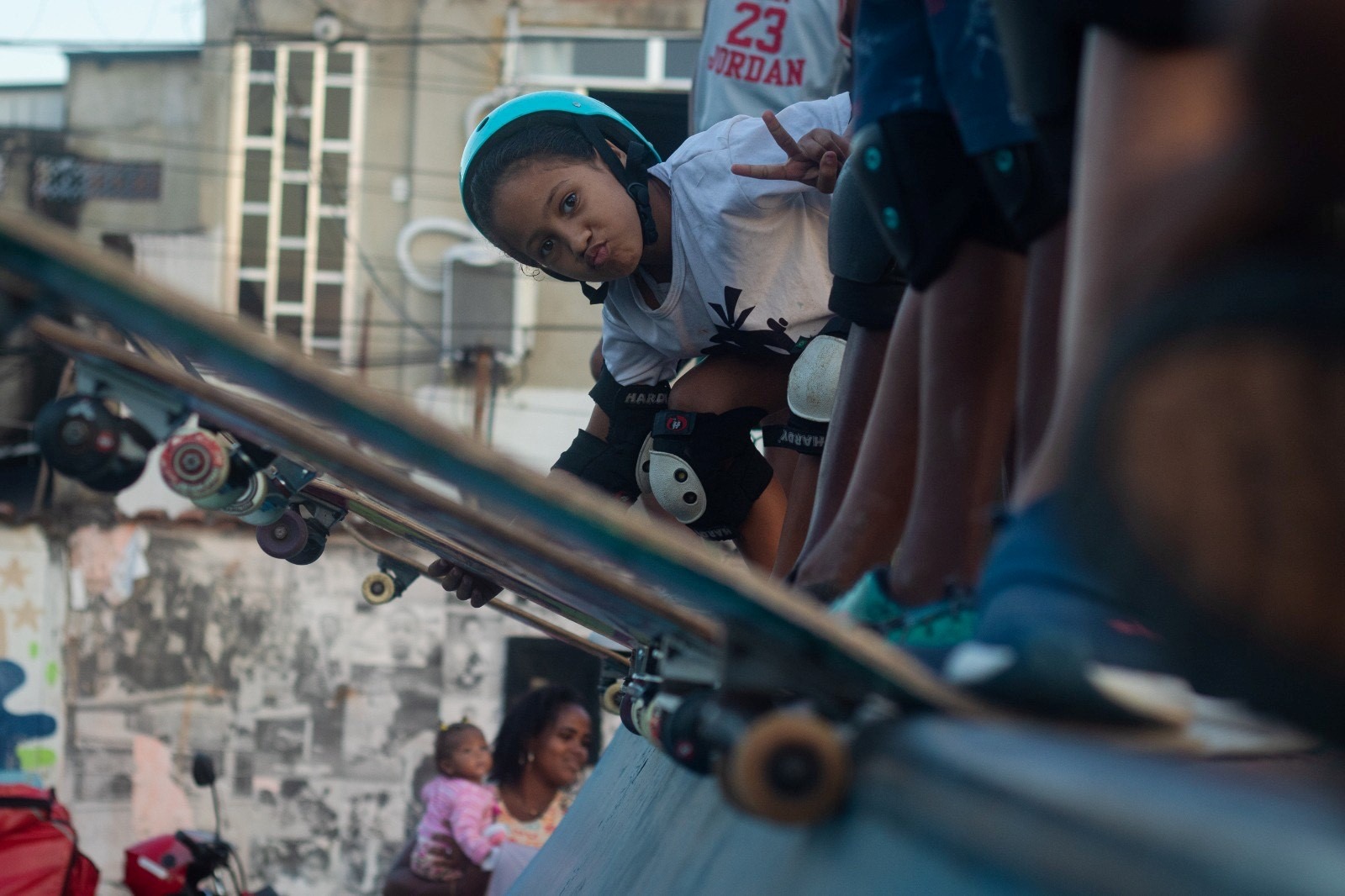
Photo: Thiago Almeida
Following on from that, you were involved in the skatepark built in the Maré Favela complex of Rio in 2019 – can you describe the impact that this facility has had in the area? There was already a smaller skatepark in that location, right?
Yeah, we did a park with Make Life Skate Life in Rio. We had Arne (Hillerns, Make Life Skate Life founder), Rob Jones, Jerry Mraz, some amazing Colombians, it was a great team. There were some wooden ramps and there was a concrete halfpipe that had been there for 5 or 6 years, so that was enough to have people involved in skating already and a scene built around it. I think there’s a concrete ramp built by the local authorities in City of God too. Ours had a miniramp, a boule court with really smooth ground where kids could learn to skate on the flat, and the street where the wooden ramps were. It was hard work,we had a much reduced team and Arne was late so I did the first ten days by myself, having never built a DIY before. But it got done, and all the guys were amazing.
They all slept in the favela and Arne said Rio was the most intense build he’s done. Arne – “Compared to our other projects, including Iraq, Lebanon and Libya, Maré Favela was the riskiest location that we’ve worked in. In the favela, the drug war is omnipresent and you’re constantly exposed to arms, drug trafficking, and gang & police violence. It was a unique opportunity to get to spend time in the favela and experience life there first hand.” He nearly got caught in a crossfire. There was a big police operation, they came in and there was a whole day of shooting. When they do these things they come in at dawn, they’ll come down a main road and the gang will sit at the other end and open fire to try and keep the police out. The police came in at 4.30am, as Arne was going out to pick up Jerry off a flight from the airport. He was two streets away, but luckily he was being driven by a friend of ours who knew straight away what was going on and didn’t drive towards the danger. I was very glad everybody stayed safe on that trip. In other places, you might be in a dangerous place but you’ll build the park in a safe area. In a favela in Rio, though, you’ve got M16s on the street, Uzis on the street, and if the police come in they’ll use them.
I had worked before for Amnesty International, a whole lot of things, and skateboarding (alongside some art projects) was the one that gave me the most time in the favelas getting to know the people the best. I made very good friends, and I’m very grateful for those friendships and those experiences. This goes back to what I was saying before; it’s great for these kids because they’re creating these strong friendship networks which aren’t based around drinking or drug taking, because the access to drugs is 24 hours. They’ll have a boca de fumo, which means drug selling point, and because they’re managed by the people who run the community there’s no challenge to it. There’ll be a table and you’ll have your weed, your ecstasy, your coke, your crack… if they sell crack there. They don’t always because crack is seen as not being good for the community. But anything you want will just be on a table in front of you, so if you’re a teenager it’s very easy. So skateboarding provides a socially, physically and creatively healthy pastime. We’ve bused kids from favelas into different parts of the city to skate, and just by that movement you’re breaking down the barriers which have come up with the drug wars.
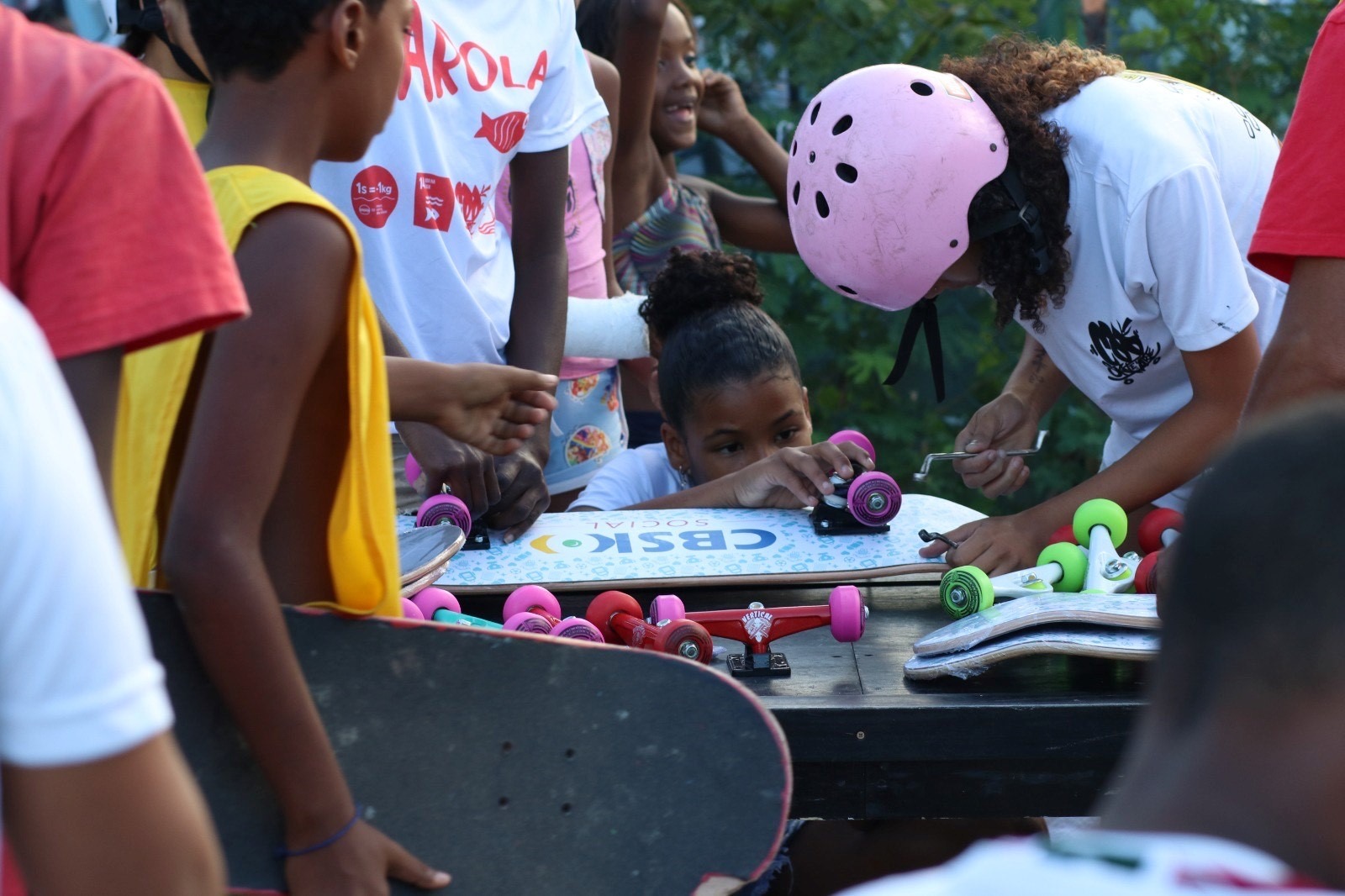
Photo: Thiago Almeida
You mentioned before the situation in the favelas being worse than ever, but is there any hope of improvement now Bolsonaro is out of power? The Western media has painted that as a huge change.
It is a big change – Bolsonaro was pro-violence, he would support the paramilitary groups and had their support. Politicians like him get the support of the most corrupt elements in politics and in policing. But people have been portraying this complete binary, goodies versus baddies, and it’s just not. The police are involved, and even if you’re a “good” police officer you’re probably taking bribes and stuff, because if you’re honest then you’ll expose yourself to worse things. All of those things, that sort of practice, was very much supported by Bolsonaro. But Lula (current president Luiz Inácio Lula da Silva) was in government for a long time before that, his party was in power for 16 years. Violence in Brazil is a modus operandi. The law is very flexible, and if you’re powerful you’ll just buy people off. The law doesn’t work properly, so violence is the bottom line that everyone knows. It’s a little bit mediaeval in a way, killing someone is the real punishment whether it’s done legally or illegally. Brazil has one of the biggest homicide rates in the world.
I don’t know whether Lula is going to reduce violence, but Bolsonaro is a crook and a fascist in the quite traditional sense. He’s a sympathiser for the military dictatorship. Brazil was under a dictatorship for a long time and Bolsonaro looks back to that era as a time of prosperity and safety, which is how they sell it. Lula is much more reasonable and there’s more hope for Brazil as a country, but in terms of violence in somewhere like Rio? One of the reasons that I moved away was that I got tired of the violence. The police can go into a place and they’ll be carrying out 20 bodies. Innocent people get killed a lot by stray bullets from shootouts, there’s a lot of random violence, which gets tiring.
The city is very localised in terms of politics and economy. A lot of it revolves around who’s getting the money from the gun smuggling and the drug smuggling. Now they have a thing where the people who run those communities will run the cable TV and the WiFi. It’ll only be a few real but, in these massive favelas, if everyone is paying for those things it comes to several million dollars per month. If it’s run by a gang in the favela then the police will usually come in and take a cut every month. If they don’t get their cut, there’ll be an operation where they go in to “fight crime.”
That’s how it works, so for things to change long term would take a conversation which took into account housing reform, land rights and bringing the favelas into the city. A lot of favelas are on land which was originally illegally occupied. Even though they’ve been there so long they have the right of residence, they’ve never been officially allowed to have land titles and stuff like that. There’s a massive informal economy, a whole load of stuff that’s deep rooted. Lula himself never took on those problems face on, though he did other things for social mobility. Bolsonaro is still quite popular. He’s supported by a lot of mafias, he’s corrupt, but he’s very popular with the police and army as he’s seen as defending their interests. But there is much more hope for Brazil, now, after what was a really bad moment.
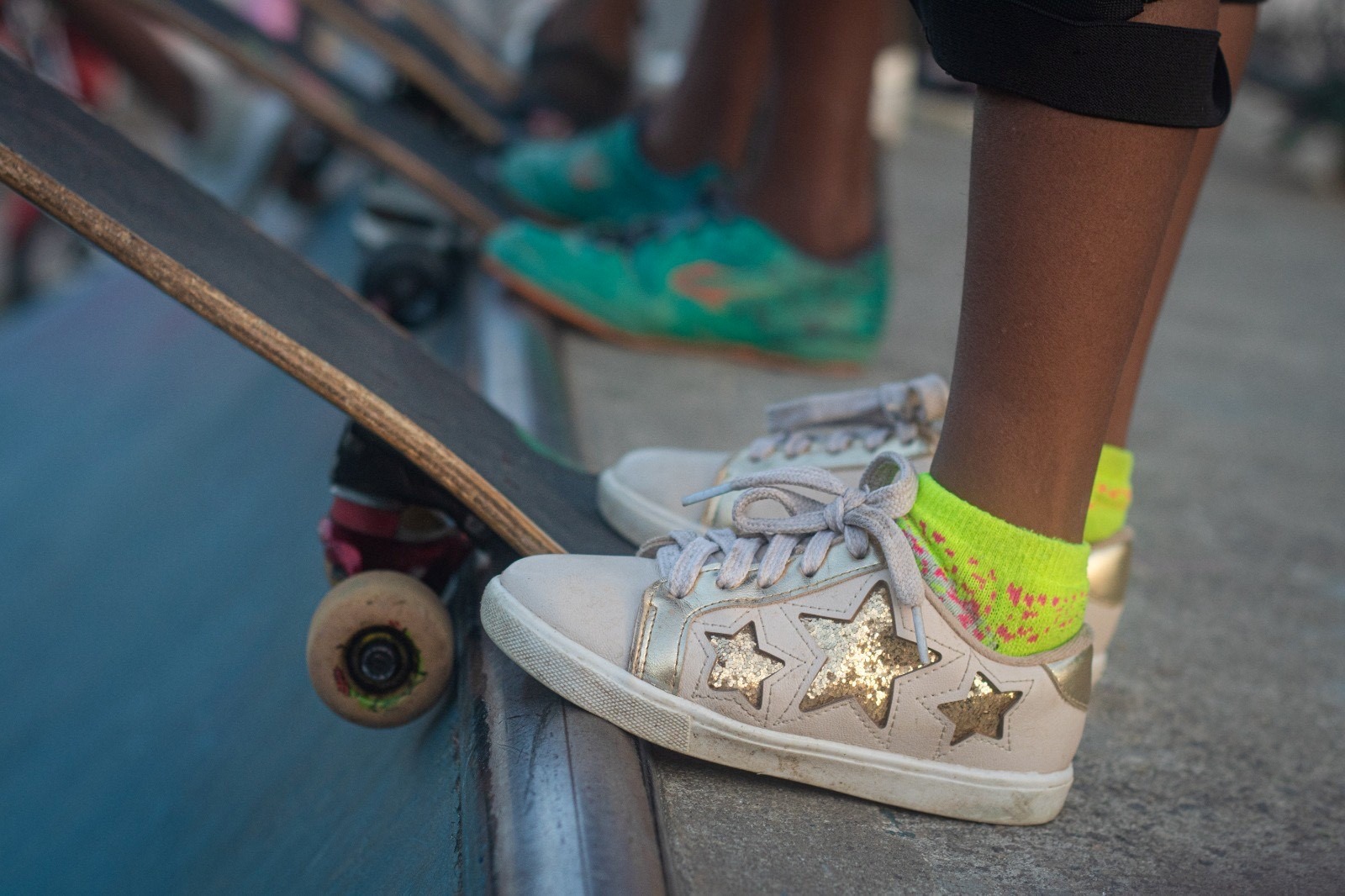
Photo: Thiago Almeida
You said in an interview a couple of years ago that you hoped that “people can stop talking about poor communities as the source of disorder and criminality.” In the preface to your book ‘Nothing by Accident: Brazil on the Edge’ you state, “I hope readers will understand that Rio de Janeiro is not always the tragedy described in these pages. It is also a fantastic, exhilarating, culturally exuberant city that is home to an inspiring, imaginative and welcoming population.” With that in mind, can you tell us a couple of your favourite things about the city?
There’s a lot of spontaneity. Unexpected things can happen and no one in Rio will ever stick to an agreement to meet up – you have to get into the flow to live in Rio, because things happen very spontaneously. People are very talkative and cordial, I don’t know if I’d say you can make friends easily but it’s a very conversational city. Everywhere you go, people are helpful and they’re happy to talk about whatever. I miss that sort of cordiality.
It’s an exuberant place, it’s creative, people can do a lot with a little. People are pretty grateful for life as a whole. What shocked me when I came back to Britain was the complaining, in a country where people have so much. The narrative that things are falling apart; there are problems here, but when you’ve lived in a place like Rio where things are really on the edge half the time, people are really grateful for the day to day. It’s a violent city, quite a few people were murdered in my time there, but people are very appreciative of what they have. The weather does help that. You can be outdoors most of the time and you’re able to have spontaneous celebrations.
Creativity, spontaneity, friendliness; a lot of that comes from the favelas. A quarter of the city’s population live in them, and they’re very vibrant communities. They’re tough to live in, because you’re all on top of each other. If I’m in the favela and my neighbour is playing his music full blast because it’s his daughter’s third birthday, they’ve turned on the music at 10 in the morning and it’ll be going until 10 tomorrow, I can’t really walk over and ask them to turn it down. You have to be very mentally resilient, because you put up with a lot, but at the same time they’re quite rewarding, friendly places. People look out for each other, people know each other well.
They can be very aesthetically breathtaking, especially the ones on hills. You have these mesmerising views. Rio is a city built on hills, there are forests, cliffs, the sea, it’s dramatic. There’s never a dull moment – they say that, in Rio, you can die of everything except boredom. They have one of the best senses of humour on the planet, they’ll laugh at anything. It’s a survival tool. They don’t take themselves too seriously, which is always a good thing.
In terms of skateboarding, it’s a place that skateboarders should think about visiting because of the sunshine and because of the friendliness. You can get a bit of surfing in as well. Flights are a bit expensive, I think that puts a lot of Europeans off, but if people want to do a good month-long skate holiday then Rio is as good a place as any to start. It’s got its Southbank equivalent, Praça XV, right in the city near the bay. There are some great skateparks. There’s a language barrier, but as a skateboarding city it’s pretty amazing.



